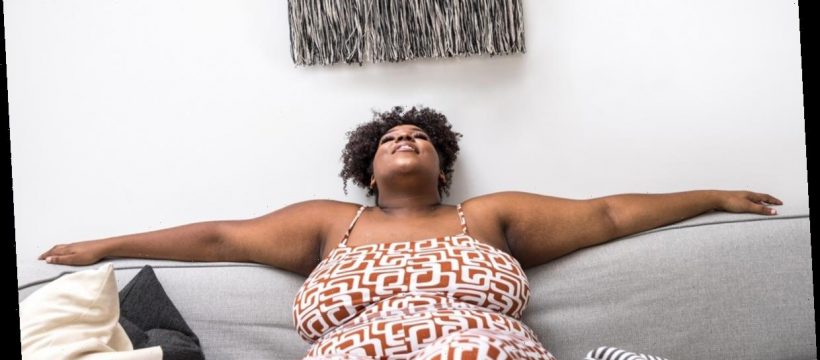It can be tempting to think that only big lifestyle changes will make a difference to your health — going entirely vegetarian or vegan, exercising five days a week, or going to bed several hours earlier, for example. It turns out, though, that when it comes to sleep, going to bed just half an hour earlier or later can make a substantial difference to your sleep patterns and rest. Small consistent changes in your nighttime routine can add up significantly, experts tell Bustle, particularly if they help you recover from sleep debt or conform to your body’s own natural sleeping patterns. If you’re looking to change your bedtime, though, it’s a good idea to pay attention to your body’s natural sleeping rhythms — or you could end up messing with your rest.
"Half an hour is not exactly a long period of time to change your bedtime, but there could be several benefits and issues," Dr. Michael Breus, Ph.D., a sleep expert, tells Bustle. Experts do not recommend a universal change towards an earlier bedtime; instead, they say you should use a half-hour shift either earlier or later to identify what your body’s natural sleep pattern is.
If you’re feeling tired or sluggish, you may not be getting the ideal amount of refreshing sleep, and your bedtime may be to blame. "Most of us go to sleep not when our body ideally wants to, but when the TV program we are watching finishes, or when our partner wants to go to bed, or when we think we should be going to sleep," Dr. Neil Stanley, Ph.D., author of How to Sleep Well, tells Bustle. If you start to go to sleep when you actually feel sleepy, he says, it may represent a small change in your routine — from half an hour to a few hours — but it could add up to significant benefits.
Research by sleep scientists suggests that people have different chronotypes. A chronotype is your body’s innate preference for a certain kind of sleep-wake cycle: some people are early birds who love to wake up early and sleep early, while others are night owls who flourish with later sleeping and waking times. According to this theory, adopting a bedtime that’s close to your chronotype is the key to restful, satisfying slumber. "If you alter your bedtime by 30 min to be closer to your chronotype, then you will more than likely fall asleep more quickly, get into deep sleep faster, and find it easier to wake up," Dr. Breus says. If you adjust your bedtime in a way that goes against your chronotype, though — going to bed at 10 p.m. when your body doesn’t want to go to sleep until 11, for instance — you likely won’t reap any benefits at all.
If you’re experiencing sleep deprivation, Dr. Breus says, even small shifts in your bedtime can make a big difference. "For example, if you need seven hours of sleep a night and you only get about six, moving your bedtime earlier and keeping your sleeping time consistent will certainly have a big effect," he says. Many people regularly experience sleep deprivation, so if you’re not feeling your best during the daytime, it may be worth shifting your bedtime — or your entire sleeping schedule, if possible — to see if another time works better for your body.
It’s all about finding the right sleeping timeline for you and your body, experts say. And if that timeline just so happens to coincide with a marathon of Cheer on Netflix, more power to you.
Studies cited:
Figueiro, M. G., Plitnick, B., & Rea, M. S. (2014). The effects of chronotype, sleep schedule and light/dark pattern exposures on circadian phase. Sleep Medicine, 15(12), 1554–1564. doi: 10.1016/j.sleep.2014.07.009
Shawa, N., Rae, D. E., & Roden, L. C. (2018). Impact of seasons on an individual’s chronotype: current perspectives. Nature and science of sleep, 10, 345–354. doi:10.2147/NSS.S158596
Experts:
Dr. Michael Breus, Ph.D.
Dr. Neil Stanley, Ph.D.
Source: Read Full Article
